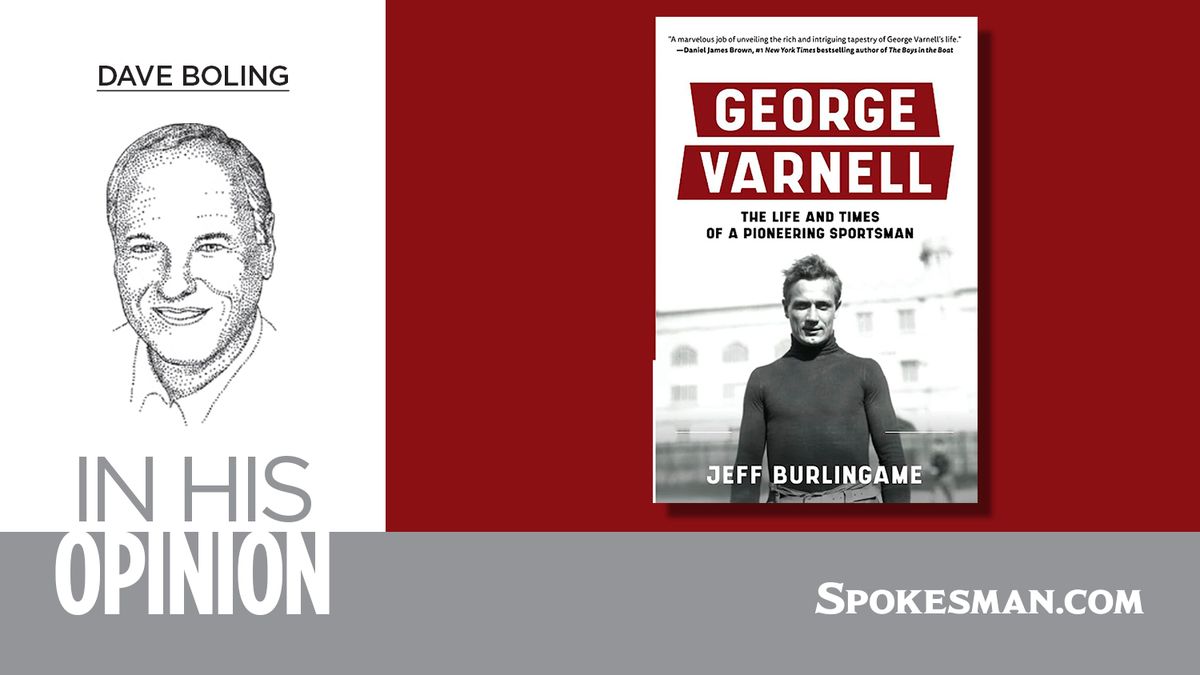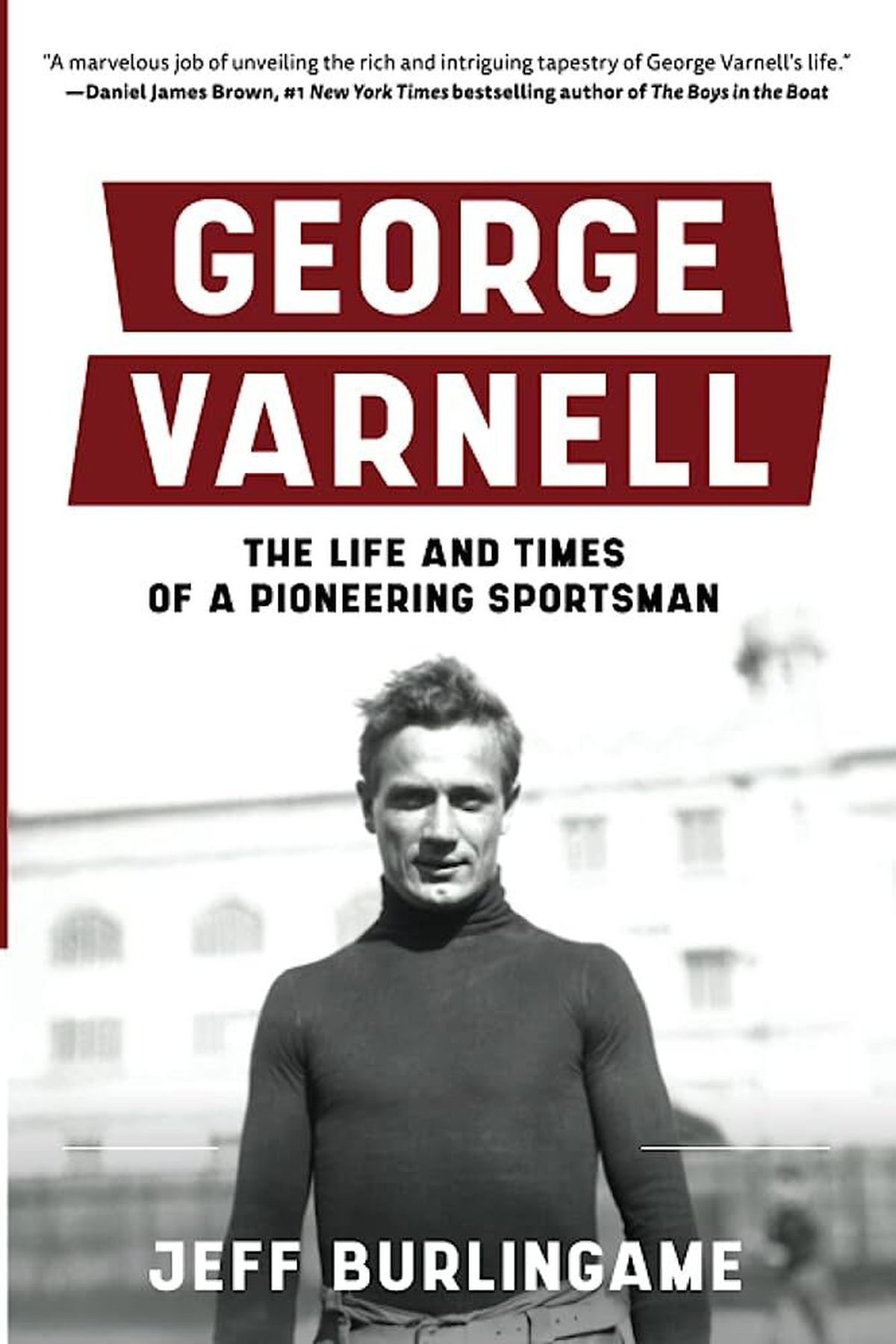Dave Boling: More than a trivia question, Gonzaga’s first basketball coach George Varnell lived a sports odyssey
If you’re like me, you often wonder why there aren’t more books written about the thrilling lives of sportswriters.
Author Jeff Burlingame comes to the rescue with his recently published “George Varnell: The Life and Times of a Pioneering Sportsman.”
Burlingame’s book not only traces the history of a noted sportswriter, but provides the answer to a curiously obscure question: Who was Gonzaga’s first basketball coach?
George Varnell.
It’s the story of a man who scooped up life unrelentingly, and with both hands, barely missing medals in two Olympic hurdles events, playing college football for the esteemed Amos Alonzo Stagg at the University of Chicago, becoming an influential sports journalist in Spokane and Seattle, and an official who refereed a record eight Rose Bowls.
He further served on the national rules committee for college football, which at the time instituted many of the rules that are still used.
Varnell’s comprehensive reporting of University of Washington rowing for the Seattle Times informed Daniel James Brown’s marvelous “The Boys in the Boat” – the story of UW crew’s gold medal at the 1936 Berlin Olympics.
Brown glowingly blurbed Burlingame’s book: “A marvelous job of unveiling the rich and intriguing tapestry of George Varnell’s life.”
Yes, it is rich and intriguing, but the best accomplishment of Burlingame’s book is that it captures the atmosphere of the times, and the cultural and sporting environment of the early 20th century in the same manner as Brown’s best-selling book.
Burlingame takes the reader back to when college athletics were in their infancy, a time of ringers and rudimentary rules and shortages of manpower, which led to some circumstances that now seem comical.
One Gonzaga basketball game at Washington State pitted coach Vardell against WSC’s legendary Fred Bohler. Both coaches were forced into some impressive multitasking: Bohler officiated while coaching, and Vardell coached and then wrote up the game story for the Spokane Chronicle.
The idea for the book came to Burlingame by way of Varnell’s grandson, Pat Dunn of Seattle, who outlined the skeleton of the story to him over lunch. “I went home and Googled him and I thought, ‘Gonzaga’s first basketball coach, and a ‘Boys in the Boat’ connection’ – there were so many things I thought were great.”
Burlingame has authored a number of books, including a 2006 biography of his childhood friend, Kurt Cobain.
Through two years of research, he traced Varnell’s fascinating path. The son of a notorious gambling house operator in Chicago, Varnell never grew past 5-foot-8, but was uncommonly fast and athletic. Running for the Chicago Athletic Club, he took fourth in both hurdles races in the 1904 St. Louis Olympics.
It led him to the University of Chicago football team, coached by the legendary Stagg, where his career was diverted by injuries and ineligibility.
He was hired in 1908 to coach Gonzaga’s football team, which shutout the Spokane College Chieftains and Cheney Normal School by a combined 67-0 on its way to a 4-0 record.
Varnell then took over the basketball team for its first official season. His 10-2 record included wins over Coeur d’Alene High, Sprague High and the Spokane YMCA, at a time when competition was somewhat less imposing than the lineup of contemporary opponents.
But, Varnell must have decided that coaching Gonzaga was less glamorous and rewarding than being sports editor of the Chronicle, and he began focusing on journalism and officiating games.
As an official, in 1922, he was dubbed “The Dean of Western Football,” by Sunset magazine. And early in 1925, he was lured to the Seattle Times, with a focus on Washington’s burgeoning crew program.
Varnell was the first to predict, in print, after a big race in 1934: “Count this Washington freshman outfit as a potential Olympic lineup in 1936.”
In his honor, the winners of the 2,000-meter Men’s Eights, at the annual Class Day Regatta, receives the George Varnell Trophy.
Burlingame lives in Tacoma and is editor of 425 Business, and South Sound Business magazines.
In this most recent book, he marveled most at “the diversity of (Varnell’s) life, and his ability to do so many different things and do them at the highest levels,” he said. “He could easily have gotten lost to history, but his family decided to pick up the torch and see where it would land. I’m happy to tell these kinds of stories.”
He’s right, Varnell’s story was fascinating. And Burlingame’s telling was equally entertaining.

